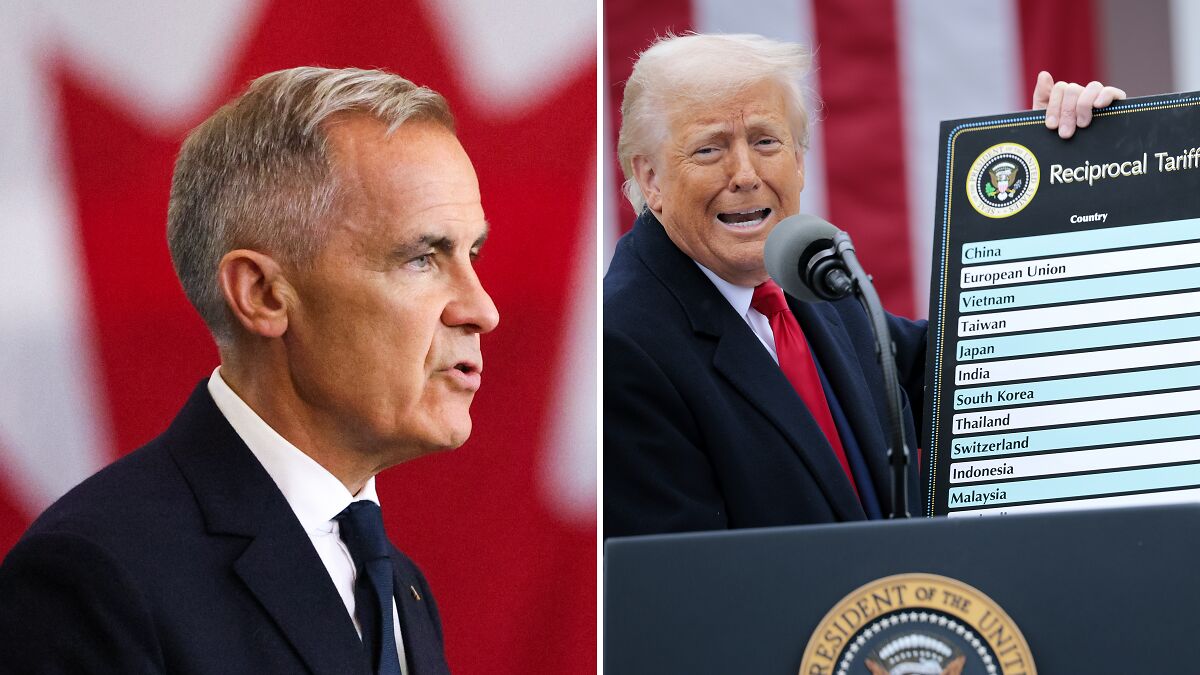
Canada “Disappointed” As Trump Hikes Tariff On Ally, Slaps New Tariffs On Dozens Of Other Nations
Donald Trump has escalated the tariff on Canada and imposed steep levies on dozens of other countries.
The U.S. president signed an executive order on Thursday, July 31, to increase the tariff on Canada from 25% to 35%, citing the cross-border flow of fentanyl.
It comes after Trump imposed an August 1 deadline for countries to negotiate trade deals with the U.S., with the new tariffs set to take effect on August 7.
- Trump signed an order raising the U.S. tariff on Canada from 25% to 35%, citing Canada’s role in fentanyl trafficking concerns.
- New tariffs also hit dozens of countries with rates from 30% to 40%, including Switzerland, Laos, Myanmar, Iraq, and South Africa.
- White House claims Mexican cartels run 'super labs' in Canada producing large amounts of fentanyl weekly, worsening the drug crisis.
- Canada disputes its role in fentanyl imports, stating it accounts for only 1%, and vows to enhance border security and drug enforcement.
U.S. President Donald Trump imposed a 35% tariff on Canada
Image credits: Chip Somodevilla/Getty Images
The higher tariff on Canada took effect on Friday, August 1.
Switzerland has been hit with a 39% tariff, while Laos and Myanmar are facing a 40% rate, and Iraq and Serbia 35%.
Algeria, Bosnia and Herzegovina, Libya, and South Africa are subject to a 30% tariff.
The decision to increase Canada’s tariff was due to its “failure to arrest traffickers, seize illicit drugs, or coordinate with U.S. law enforcement,” as well as its decision to impose reciprocal tariffs on the U.S., the White House said.
Goods covered under the United States-Mexico-Canada Agreement (USMCA) will not be subject to the 35% tariff, but lumber, steel, aluminum, and automobiles will be heavily impacted.
Image credits: VCG/VCG via Getty Images
According to the White House, the amount of fentanyl seized at the northern border this fiscal year could have killed more than 16 million Americans due to the drug’s potency.
It said drug seizures at that border since October last year had surpassed total seizures of the past three years combined.
Mexican cartels are increasingly operating fentanyl and nitazene synthesis labs in Canada, the White House said, and it claimed that “super labs” were being run in rural and dense areas in Western Canada by drug trafficking organizations.
“Some of which can produce 44 to 66 pounds of fentanyl weekly,” the White House noted.
Image credits: The White House
Canada said it only accounts for 1% of U.S. fentanyl imports, and it has been working intensively to further reduce this number.
In a statement, Prime Minister Mark Carney said he was “disappointed” by the new tariff measures, but he would continue to negotiate with the U.S. on their trading relationship.
“Canada’s government is making historic investments in border security to arrest drug traffickers, take down transnational gangs, and end migrant smuggling,” Carney said.
“These include thousands of new law enforcement and border security officers, aerial surveillance, intelligence and security operations, and the strongest border legislation in our history.
“We will continue working with the United States to stop the scourge of fentanyl and save lives in both our countries.”
Canadian Prime Minister Mark Carney said he was disappointed in the new measure
Image credits: Cole Burston/Getty Images
Carney said the Canadian government would act to protect Canadian jobs and diversify export markets to help sectors impacted by the tariffs.
The government, he noted, is also developing a series of “major nation-building projects” with provincial, territorial, and Indigenous partners.
Those initiatives could potentially lead to over half a trillion dollars of new investments in Canada.
“Canadians will be our own best customer, creating more well-paying careers at home, as we strengthen and diversify our trading partnerships throughout the world,” Carney added.
My statement on Canada-U.S. trade: pic.twitter.com/0PSG9kKtiO
— Mark Carney (@MarkJCarney) August 1, 2025
“We can give ourselves more than any foreign government can ever take away by building with Canadian workers and by using Canadian resources to benefit all Canadians.”
In response to Trump’s tariff measures earlier this year, the Canadian government placed a retaliatory tariff of 25% on a wide range of U.S. exports, including steel, aluminum, vehicles, and consumer goods.
So far, Trump has finalized trade agreements with the UK and the EU, and reached tariff arrangements with Japan, the Philippines, and South Korea.
A federal court case is currently ongoing to assess the legality of Trump’s sweeping tariffs.


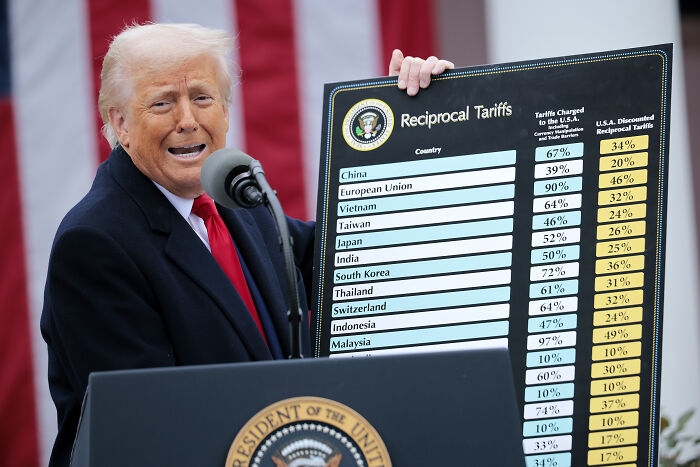
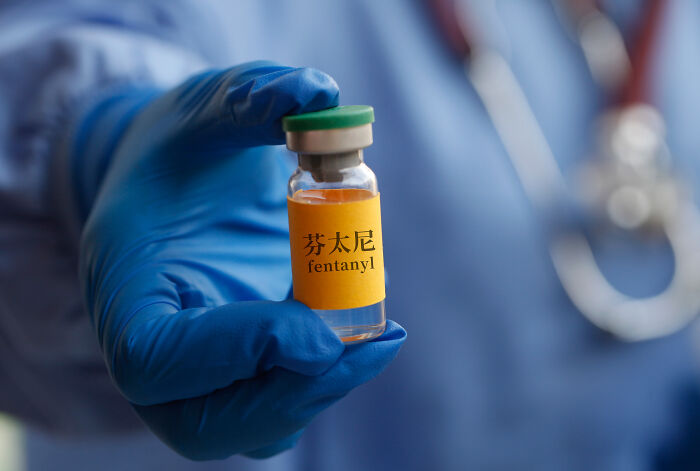
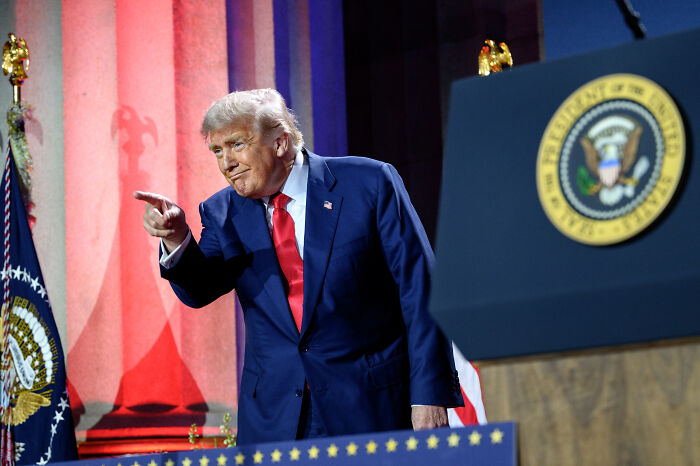
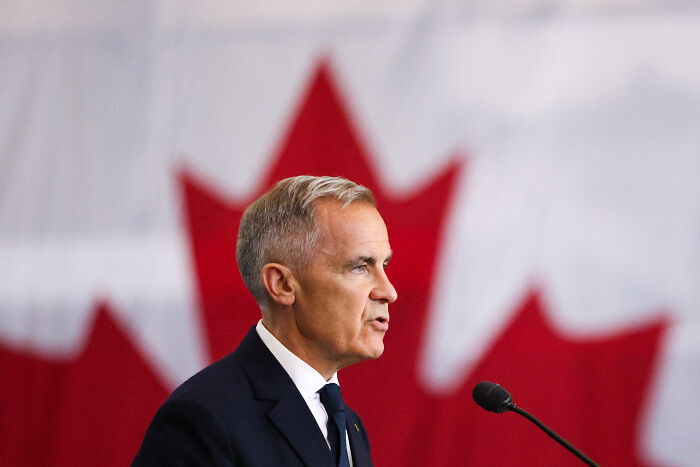



17
0